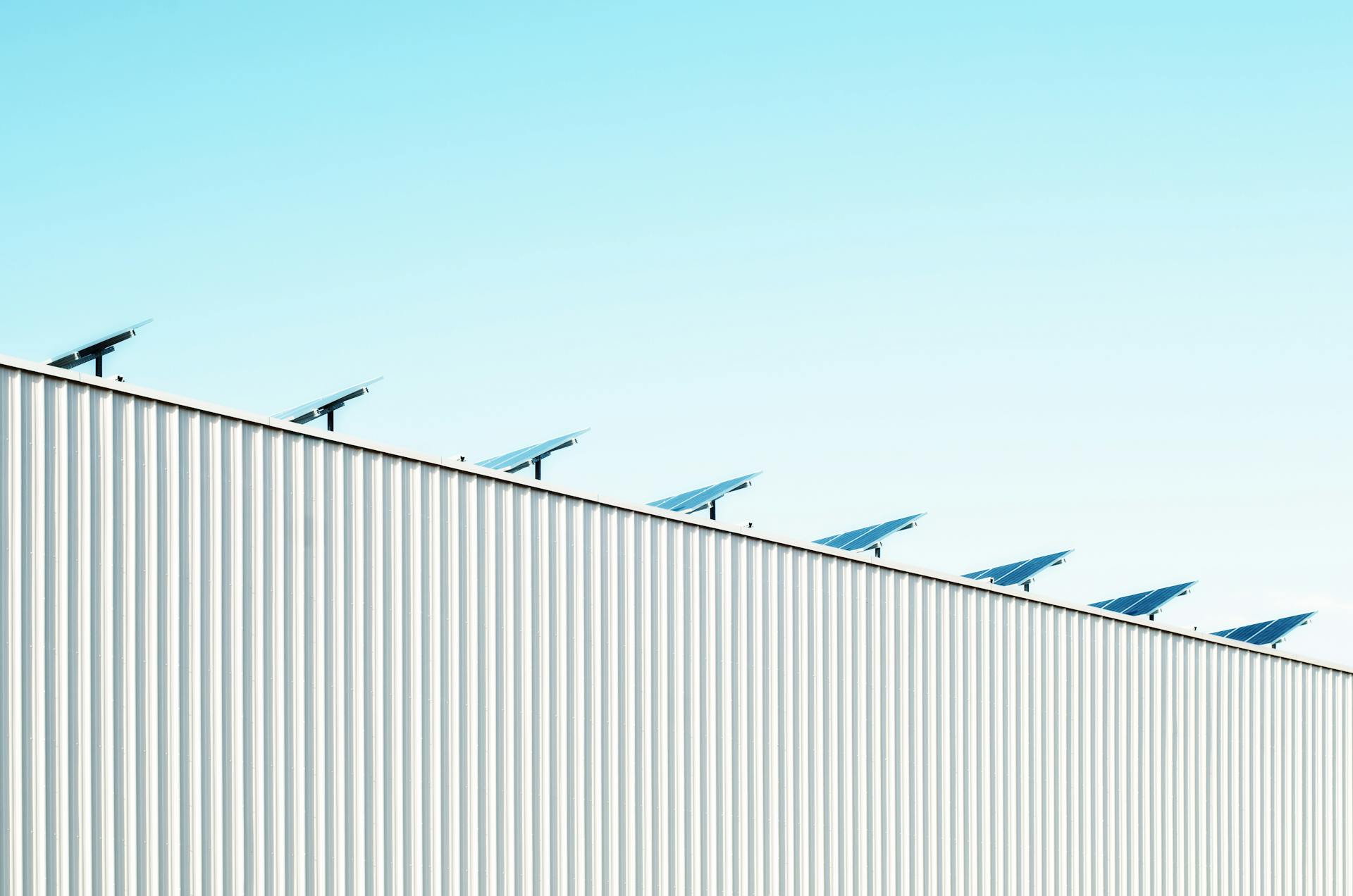Imagine a home that not only understands your energy needs but also powers itself using the sun’s rays. As smart homes and solar energy rapidly become the cornerstones of modern living, the fusion of these technologies is paving the way for a more efficient and sustainable future.
In recent years, the rise of smart homes has transformed the way we interact with our living spaces, offering unprecedented control over everything from lighting to security. At the same time, solar energy has emerged as a leading solution for clean, renewable power, reducing our dependence on fossil fuels and lowering energy costs. When combined, these two trends create a powerful synergy that not only enhances home efficiency but also contributes significantly to environmental sustainability. This article will explore the integration of solar energy with smart home technology, highlighting how this innovative combination can revolutionize energy management and lead us towards a greener, more connected future.
Understanding Solar Energy and Smart Homes
Solar energy harnesses the power of the sun to generate electricity, providing a clean, renewable alternative to traditional fossil fuels. Solar panels, composed of photovoltaic (PV) cells, convert sunlight directly into electricity, making it an increasingly popular choice for homeowners seeking sustainable energy solutions.
Smart homes utilize advanced technology to automate and optimize various household functions, including lighting, heating, security, and energy management. Equipped with sensors, smart devices, and centralized control systems, smart homes can monitor and adjust energy usage in real-time, ensuring that power is used efficiently and effectively.
The integration of solar energy with smart home systems creates a powerful synergy that enhances both energy efficiency and sustainability. Solar panels generate renewable energy, while smart home technology ensures that this energy is used in the most efficient manner possible. This combination allows homeowners to reduce their reliance on the grid, lower their energy bills, and minimize their environmental impact, all while enjoying a more comfortable and convenient living experience.
The Role of Solar Panels in Smart Homes
Installing solar panels in a smart home involves several key considerations, such as roof orientation, size, and the household’s energy needs. The roof must be positioned to maximize sun exposure, typically facing south in the Northern Hemisphere. The size and number of panels should be tailored to meet the home’s energy consumption patterns, ensuring that enough electricity is generated to power the home efficiently. Proper installation is crucial for optimizing energy production and integrating the system with smart home technology.
Solar panels generate electricity by converting sunlight into direct current (DC) power, which is then converted into alternating current (AC) for use in the home. To maximize the benefits of solar energy, many smart homes incorporate energy storage solutions, such as home batteries. These batteries store excess solar energy generated during the day, allowing it to be used at night or during periods of low sunlight. This ensures a steady supply of renewable energy, reducing reliance on the grid and enhancing energy independence.
Smart home systems play a vital role in managing and optimizing solar energy production and usage. By monitoring energy production and consumption in real-time, smart systems can adjust energy use patterns to align with peak solar generation. For example, they can schedule energy-intensive activities, such as running appliances or charging electric vehicles, during times of high solar output. This intelligent energy management maximizes efficiency, reduces waste, and ensures that the home operates as sustainably as possible.
Benefits of Integrating Solar Energy with Smart Homes
The combination of solar energy and smart home technology significantly enhances energy efficiency. Smart systems optimize the use of solar power, ensuring that it is utilized when most needed and stored for later use. This reduces energy waste and lowers overall consumption, leading to substantial savings on energy bills.
Integrating solar energy with smart homes contributes to a greener, more sustainable future. By reducing reliance on fossil fuels, this combination lowers carbon emissions and helps mitigate the effects of climate change. The reduced environmental footprint of solar-powered smart homes makes them an attractive option for environmentally conscious homeowners.
Over time, the integration of solar energy with smart home technology can lead to significant cost savings. Lower energy bills, combined with potential government incentives and rebates for solar energy adoption, make this investment financially appealing. Additionally, the ability to generate and store energy on-site provides a hedge against rising electricity prices.
Homes equipped with solar panels and smart technology are often more attractive to buyers, leading to increased property values. The combination of energy efficiency, sustainability, and cutting-edge technology enhances the home’s appeal, making it a wise investment for the future.
Smart Home Technologies for Solar Energy Integration
A critical component of solar energy systems, smart inverters convert the direct current (DC) generated by solar panels into alternating current (AC) used in homes. Unlike traditional inverters, smart inverters can communicate with the grid and the smart home system, allowing for better energy management. They can adjust the flow of electricity based on real-time data, ensuring that excess energy is either stored in home batteries or fed back into the grid. This not only improves efficiency but also enhances grid stability, making the home’s energy system more resilient.
Smart energy monitoring systems are integral to optimizing solar energy use in smart homes. These systems provide real-time data on energy production, consumption, and storage. Homeowners can access this information via mobile apps or smart home hubs, allowing them to make informed decisions about their energy use. For example, they can identify when energy consumption peaks and adjust their usage patterns accordingly, or they can monitor battery levels to ensure they have sufficient stored energy for use during the evening or cloudy days.
Smart homes equipped with solar energy can take advantage of automated appliances and devices that operate based on energy availability. For instance, washing machines, dishwashers, and water heaters can be programmed to run during peak solar production times, reducing reliance on the grid and lowering energy costs. Additionally, smart thermostats can adjust heating and cooling settings based on energy availability, ensuring that the home remains comfortable while optimizing energy efficiency.
Challenges and Considerations
Integrating solar energy with smart home technology requires a significant upfront investment. The cost of solar panels, smart inverters, home batteries, and other related technologies can be substantial. However, these costs can be offset by long-term savings on energy bills and potential government incentives. It’s essential for homeowners to consider the payback period and assess their long-term energy needs when evaluating this investment.
Setting up a fully integrated solar-smart home system involves a high level of technical complexity. The installation and configuration of solar panels, energy storage solutions, and smart home devices require professional expertise. Additionally, the system must be maintained to ensure optimal performance. Homeowners need to be prepared for the technical challenges involved in managing such a system, including software updates, troubleshooting, and occasional maintenance.
One potential challenge in integrating solar energy with smart home technology is ensuring compatibility between different systems and devices. Not all smart home platforms are designed to work seamlessly with solar energy systems, which can lead to integration issues. Homeowners must carefully select products that are compatible with their existing smart home infrastructure or be willing to invest in additional technology to bridge any gaps. Compatibility with the local grid and regulations is also a consideration, particularly if the home will export excess energy.
The Future of Solar Energy and Smart Homes
The future of solar energy and smart homes is bright, with continuous advancements in technology poised to further enhance energy management. Innovations such as bifacial solar panels, which capture sunlight on both sides, and more efficient home batteries are set to improve the efficiency and effectiveness of solar energy systems. Additionally, advancements in artificial intelligence (AI) could lead to even smarter energy management systems, capable of learning from user behavior and predicting energy needs more accurately.
As the benefits of integrating solar energy with smart home technology become more widely recognized, adoption is expected to increase significantly. Governments around the world are offering incentives to encourage the use of renewable energy, and as costs continue to decrease, more homeowners will be able to afford these systems. Widespread adoption could lead to a decentralized energy grid, where homes generate and manage their own power, reducing strain on traditional energy infrastructure and promoting sustainability.
Government policies and incentives play a crucial role in promoting the integration of solar energy with smart homes. Policies that support renewable energy adoption, such as tax credits, rebates, and feed-in tariffs, can make these technologies more accessible to homeowners. Additionally, regulations that encourage the development of smart grid infrastructure and support for research and development in this field are essential for driving innovation and widespread adoption.
Conclusion
Integrating solar energy with smart home technology represents a significant leap forward in energy management, combining the benefits of renewable energy with the convenience and efficiency of smart systems. By harnessing the power of the sun and optimizing its use through intelligent monitoring and automation, homeowners can significantly reduce their energy bills, decrease their carbon footprint, and increase the value of their properties. Solar panels, smart inverters, energy monitoring systems, and automated appliances work together to create a home that is not only energy-efficient but also sustainable and resilient.
The integration of solar energy with smart home technology is more than just a trend—it’s a glimpse into the future of how we will manage and consume energy. As technological advancements continue to make these systems more accessible and efficient, the potential for solar-smart homes to revolutionize the way we live becomes increasingly apparent. These homes offer a solution to some of the most pressing challenges of our time, from reducing reliance on fossil fuels to managing energy more effectively in an increasingly connected world.
For those considering the next step in energy management, exploring the integration of solar energy with smart home technology is an investment in the future. With the potential for significant cost savings, enhanced efficiency, and a positive environmental impact, there has never been a better time to embrace this innovative approach. Consider consulting with a professional to evaluate the feasibility and benefits for your own home, and take the first step toward creating a sustainable and smart living environment.


